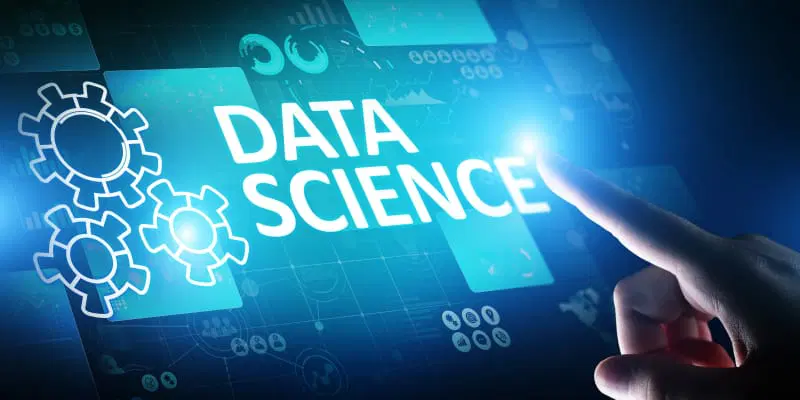Introduction
The demand for data science professionals is skyrocketing, and enrolling in a top-notch data science course can be your ticket to a lucrative career. But with so many options available, how do you pick the right one?
In this comprehensive guide, we’ll break down everything you need to know—from key skills covered in a data science course to the best programs available in 2024. Whether you’re a beginner or looking to upskill, this article will help you make an informed decision.
What is a Data Science Course?
A data science course is a structured program designed to teach you the essential skills needed to analyze, interpret, and leverage data effectively. These courses cover a wide range of topics, including statistics, machine learning, programming, and data visualization.
Why Should You Enroll in a Data Science Course?
- High Demand: Companies across industries are hiring data scientists at an unprecedented rate.
- Lucrative Salaries: Data scientists earn some of the highest salaries in the tech industry.
- Versatility: Skills learned can be applied in finance, healthcare, marketing, and more.
Who Should Take a Data Science Course?
- Beginners looking to enter the field
- Professionals wanting to upskill
- Analysts transitioning into data science roles
Key Components of a Data Science Course
Programming Languages (Python & R)
Most data science courses start with teaching programming languages like Python and R. These languages are essential for data manipulation, analysis, and machine learning. Python is particularly popular due to its simplicity and extensive libraries like Pandas and NumPy.
Statistics & Probability
Understanding statistical concepts is crucial for interpreting data accurately. Topics typically include:
- Hypothesis testing
- Regression analysis
- Probability distributions
- Bayesian thinking
Machine Learning & AI
A quality data science course will cover:
- Supervised learning (linear regression, decision trees)
- Unsupervised learning (clustering, dimensionality reduction)
- Neural networks and deep learning basics
Data Visualization (Tableau, Power BI)
Learning tools like:
- Tableau for interactive dashboards
- Power BI for business analytics
- Matplotlib/Seaborn for Python-based visualizations
Big Data Technologies (Hadoop, Spark)
For handling large datasets, courses often include:
- Hadoop ecosystem (HDFS, MapReduce)
- Spark for real-time processing
- NoSQL databases like MongoDB
Top Data Science Courses in 2024
| Course Name | Platform | Duration | Key Features |
|---|---|---|---|
| IBM Data Science Professional Certificate | Coursera | 3-6 Months | Hands-on projects, IBM certification |
| Data Science Specialization | Johns Hopkins (Coursera) | 6-12 Months | R programming, real-world case studies |
| Google Data Analytics Professional Certificate | Coursera | 6 Months | SQL, Tableau, Google career support |
| MITx MicroMasters in Data Science | edX | 12 Months | Rigorous curriculum, MIT-backed |
| General Assembly Data Science Immersive | General Assembly | 12 Weeks | Intensive bootcamp, career coaching |
How to Choose the Right Data Science Course?
Define Your Goals
Are you looking for:
- A complete career change?
- Skill enhancement in your current role?
- Academic advancement?
Check the Curriculum
Ensure the course covers:
✔ Core programming (Python/R)
✔ Machine learning fundamentals
✔ Real-world applications
Look for Hands-on Projects
The best courses include:
- Capstone projects
- Kaggle competitions
- Industry case studies
Instructor Expertise
Prioritize courses taught by:
- Industry practitioners
- Renowned academics
- Google/IBM/Microsoft certified trainers
Certification & Job Support
Look for programs offering:
- Recognized certifications
- Career coaching
- Job placement assistance
Career Opportunities After a Data Science Course
Completing a data science course opens doors to:
| Job Role | Average Salary (US) | Key Responsibilities |
|---|---|---|
| Data Scientist | $120,000 | Building ML models, data analysis |
| Data Analyst | $75,000 | Data cleaning, visualization |
| ML Engineer | $145,000 | Deploying AI systems |
| BI Analyst | $85,000 | Creating business reports |
FAQs
What is the best online data science course for beginners?
The IBM Data Science Professional Certificate on Coursera is ideal for beginners with no prior experience.
How long does it take to complete a data science course?
- Bootcamps: 3-6 months
- University programs: 1-2 years
- Self-paced learning: 6-12 months
Do I need a math background for data science?
While helpful, most courses teach required math concepts. Focus areas include statistics and linear algebra.
Can I get a job after a data science course?
Yes! Build a strong portfolio with 3-5 projects to showcase your skills to employers.
Is Python or R better for data science?
Python is more versatile for end-to-end projects, while R excels in statistical analysis.
Are free data science courses worth it?
Great for basics, but paid courses offer better structure, certifications, and career support.
Conclusion
Choosing the right data science course requires careful consideration of your goals, learning style, and career aspirations. The field offers tremendous opportunities, and with the proper training, you can position yourself for success in this high-growth industry.
Ready to start your data science journey? Explore the courses mentioned above and take the first step toward an exciting new career!









